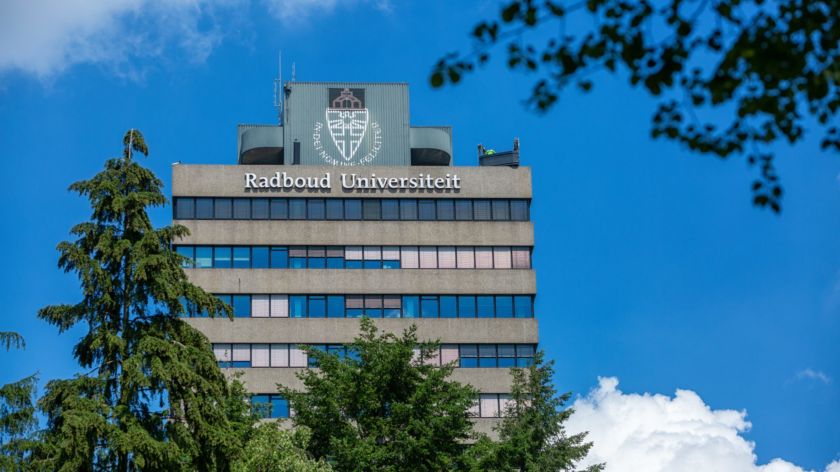Innovation necessary in secondary education to save university language studies
-
 Photo: Dick van Aalst
Photo: Dick van Aalst
From May 9th through 12th, Nijmegen can claim the title ‘Language Capital of the Netherlands’. But while there are many prominent language institutes in the city that help it live up to the title, the number of students attending language studies at Radboud University still leaves a lot to be desired.
Language courses have been raising the alarm for years now. The number of applications to the smaller language studies in particular is not doing well. For example: since 2012 it is no longer possible to study Finnish or Hungarian in the Netherlands; the popularity of the Celtic and Spanish languages was drastically reduced in 2015; and the National Platform for Languages was founded in 2018 to make university-level language studies more appealing.
Last year Radboud University saw a slight uptick in the number of first-year students at the Faculty of Arts of five per cent. That would seem like good news for language studies, but those students are not distributed equally across the courses. While the number of first years doubled for the Romance languages, German Language and Culture had to make do with fewer students than the previous year. ‘That really is very worrying’, according to José Sanders, dean for the Faculty of Arts.
Language Debate
As part of Nijmegen as Language Capital, there are discussions with involved parties from all over the Netherlands regarding the influx and outflow of modern language and culture studies. ‘For instance, we are speaking with government authorities as well as businesses about their expectations of our graduates, and we are talking with people in secondary education about how they can guide prospective languages students to us’, as stated by Paul Sars, professor of Modern Languages and Cultures at Radboud University.
According to Sanders, these talks are very valuable. ‘There is significant cohesion between the availability and quality of language courses in secondary school and the interest in languages at a university level. For example, Sanders states that the decrease in the number of students of German and the increase in the number of students of Spanish correlates to a similar trend in secondary schools.
Innovation in Education
Sanders thinks that this has a lot to do with teaching methods. ‘German literature is not interesting to a lot of secondary school students. But they might enjoy knowing how Germans interact with social media or what’s on German television.’ According to her, secondary schools should focus not just on learning the facts of a language, but also on making those languages relevant to students. This is important, because if secondary schools make their education more appealing, that means that more students will apply to universities.
‘Why aren’t we making much more use of translation engines and other means?’
Besides this shift in focus, language education could benefit from some modernisation, according to Sanders. ‘There used to be a lot of emphasis on mental arithmetic in classes, but now the calculator is an invaluable part of all exact subjects. Why aren’t we doing the same thing in foreign language education? Why aren’t we making much more use of translation engines and other means?’
Because of conversations like these, Sars tends to be optimistic about the future, rather than worried about the current number of language students. He too sees a major responsibility for language courses. ‘If a student says: “I don’t feel like drilling vocab”, then it is up to us to think of a different way we can teach them a language. That is a challenge, and I am up for it.’



